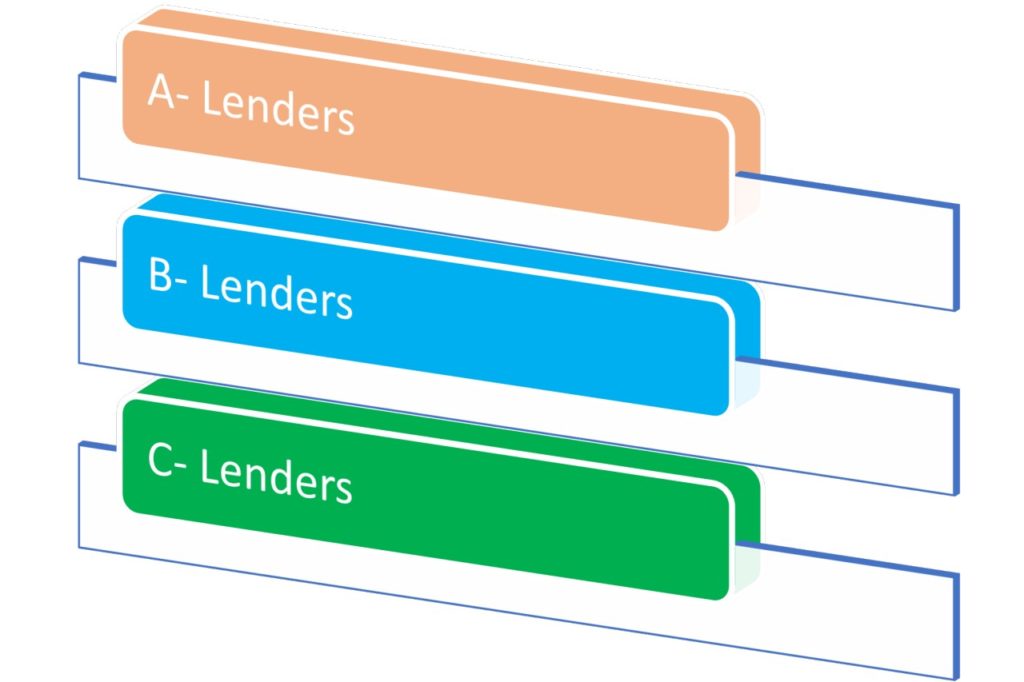Know Everything About B-Lender Mortgage Lending In Canada
Are you looking to buy your dream property through a mortgage loan? Do you know several institutions, except the Chartered Banks, offer mortgage loans at competitive mortgage rates? We will tell you about A-lenders, B-lenders, and the C-lenders.

Source: Freepik
What Are the Different Lenders Operating in The Mortgage Loan Industry?
It is a fact that Ontarians alone owe about $1.4 trillion (about $4,300 per person in the US) on mortgage loans. Approximately 5.71 million homeowners in Canada who spend more than $100 billion (about $310 per person in the US) (about $310 per person in the US) every year in making mortgage payments. Well, the mortgage industry in Canada is enormous, and even rapidly growing with every passing year.
It is common for the various business houses to get attracted to a booming industry. The same happened with the mortgage industry as well, and presently there are three different “tiers” or “classes” operating in Canada in the mortgage space.


Let us gain a quick understanding of all these classes through the table below:
| Classes | Types of Institutions Covered | Description |
| A-Lender | • Regulated Banks, such as a) Royal Bank of Canada b) TD Bank c) Bank of Nova Scotia, etc. • Credit Unions, such as a) Coast Capital Savings Federal Credit Union b) UNI Financial Cooperation etc. | • These are chartered banks that are regulated by the federal government • These are credit unions that are regulated by the federal or provincial governments • These institutions extend loans to borrowers who have some of the best credit scores and a stable source of income • Most homebuyers initially approach A-lenders for securing a mortgage loan • The lenders require their potential borrowers to undergo a stress test |
| B-Lender | • Trust companies • Tier-B companies • Mortgage Finance Companies • Monoline institutions • Credit Unions and • All the other non-traditional sources of lending | • These institutions are quasi-regulated • They are not directly regulated either by the federal or provincial government • However, they are still required to follow all the guidelines and regulations of B-20 • Most homebuyers approach a B-lender when they are unable to secure a loan from the A-lenders • Thus, they are also known as shadow lenders or alternative lenders • These provide you mortgage loans with flexible terms and conditions • Generally, they charge a higher mortgage rate as compared to A-lenders |
| C-Lender | • Individual lenders • Mortgage Investment Corporation (MIC) • Registered corporation, etc. | • These are private mortgage lenders that are neither regulated directly nor indirectly • These companies do not follow B-20 rules and guidelines • These lenders are the most lenient and are the most flexible while offering mortgage loans • Generally, they charge the highest mortgage rate from their borrowers • They provide quick funds in the least amount of time due to negligible paperwork |
When Should You Approach a B-Lender for Securing a Mortgage Loan?


The B-lenders often act as an alternative lending source, allowing you to secure a mortgage loan with flexible terms and conditions. There can be several reasons following which a homebuyer might approach a B-lender. However, below are the two most common factors that propel people to approach them:
| Factor I: You Lack Income Stability | Factor II: You Have a Weak Credit Score |
| • Most A-lenders extend the mortgage loans only if you have a stable source of income • If you have just started earning and you have an earning/ employment history of fewer than 5 years, then there are high chances that you will not get a mortgage loan from the A-lenders • Also, in such a case you will not be able to qualify for the mandatory stress test >> Most B-lenders are willing to compromise on the income aspect and can extend you mortgage loans even if you don’t have a stable income source >> You can get funds from them by simply giving them an income statement for 1 year to 3 years You are also not required to undergo a stress test | • If you have a weak credit score (say less than 700) then there is a possibility that you might not get a mortgage loan from an A-lender • If you have a poor credit history and you defaulted on several of your debts, then you must be having a credit score of less than 700 >> However, B-lenders are designed in such a way that they can compromise their asset quality and offer loans to people having a low credit score >> You can get a mortgage loan from the B-lenders even if you have a low credit score |
What Are the Pros and Cons Of B-Lender Mortgage in Canada?


If the B-lenders have several arguments in their favor, it faces several criticisms. Let us form a reasonable opinion by understanding the pros and cons of B-lenders.
Pros:
- Flexibility: You might not qualify for a mortgage loan from A-lenders, but you still need a home to live in. Here, you can reach out to the B-lenders and secure a mortgage loan by taking advantage of their lenient conditions and flexible requirements.
- Shorter Mortgage Terms: Typically, A-lenders offer mortgage terms of 5-years. However, a B-lender can offer a shorter mortgage term, which can last anywhere between 1 year to 3 years.
- Less Strict: You have a high-debt servicing ratio, a non-stable income source, and a poor credit score, yet you can get a loan from these B-lenders.
Cons:
- High Costs: Be it the closing costs or the mortgage interest rates, you will pay significantly more than the conventional A-lenders. B-lenders compensate for their risk of poor asset quality by charging a higher interest rate.
- Less Visible: Most B-lenders cannot afford to advertise in popular mediums. It makes them less visible, and it is tough for you to find them.
- Compulsory Appraisal: Most B-lenders turn down the mortgage application if you have not done a property appraisal. B-lenders will conduct an appraisal before giving you the loan, which inflates your closing costs and makes your mortgage loan expensive.



